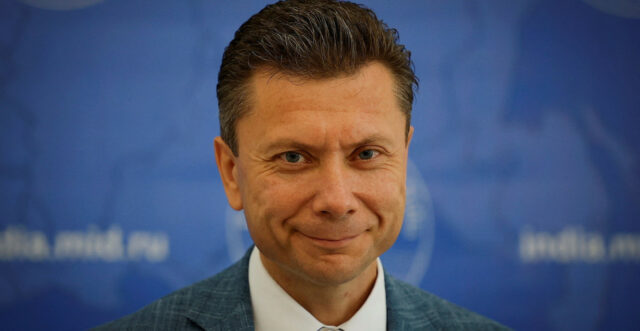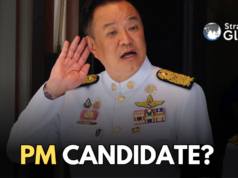
Russia has sharply criticised the U.S. for imposing punitive measures on India for buying discounted Russia oil that the Americans say is feeding the war in Ukraine. An additional 25% tariffs imposed by the Trump administration is scheduled to come into effect later this month.
“Friends don’t impose sanctions. Such pressure is unjustified and these secondary sanctions are illegal under international law,” says Roman Babushkin, Chargé d’Affaires at the Russian Embassy in India. “If the West criticises you, it means you’re doing everything right.”
Russia Rejects U.S. Claims
He rejected the White House’s claim that U.S. pressure, including tariffs on India, had influenced Russia’s position on Ukraine peace talks. He called the claims “speculative” and “rumours.”
“If Indian goods are facing difficulties in the U.S. market, Russian markets are open for them. Don’t worry,” he said at a press briefing. “The narrative that India is being used as leverage on Russia is misleading. We do not accept that.”
‘No Alternative To Russian Crude’
Despite Western pressure, Indian state-run refiners, including Indian Oil Corporation (IOC) and Bharat Petroleum, have resumed purchase of Russian crude for September and October deliveries after more favourable discounts returned.
Evgeniy Griva, Deputy Trade Representative of Russia to India, made clear that Russian oil remains India’s best option. “There is no alternative to Russian crude oil… The price we offer is very competitive and very, very profitable for India,” he said.
Babushkin added: “Russia is the largest producer of oil, and India is one of the largest consumers. Unilateral actions [from the West] destabilise markets and threaten the energy security of developing countries.”
Moscow has put in place a “very, very special mechanism” to ensure continued supplies and streamline payment systems, he noted.
India-Russia Trade Growing Rapidly
Trade between the two countries has increased seven-fold in recent years, with Russia now India’s fourth-largest trading partner, according to Griva. He predicted an annual growth of around 10%, with Indian exports of pharmaceuticals, electronics and machinery also rising.
Russia is also working on “eliminating trade barriers and improving payment systems” to make bilateral trade more efficient. This includes more use of local currencies to bypass dollar-based sanctions. Asked about pressure on countries to avoid national currency trade, Griva responded bluntly: “Blackmail.”
Babushkin added: “Trade protectionism and instability are violations of the WTO’s MFN rules. Our markets are open for Indian goods. We don’t believe in coercion.”
BRICS As Counterbalance To The West
Babushkin described BRICS as a “stabilising force” and a “trusted platform” that fosters “robust cooperation” in a multipolar world.
“BRICS has developed a culture of open partnership. In GDP terms, it is bypassing the G7. A majority of developing countries are now interested in joining,” he said, reiterating that Russia would never impose sanctions within BRICS.
He criticised Western countries for adopting a “neo-colonial approach focused only on their own interests”, while Russia emphasises “mutual benefit and trust” in its relations with India.
Strategic Signals And Symbolic Gestures
This year marks the 78th anniversary of India-Russia diplomatic ties and 25 years of the strategic partnership. President Putin recently congratulated PM Modi on India’s Independence Day and offered condolences over the Kashmir floods.
India’s External Affairs Minister S. Jaishankar is currently in Moscow and will meet his Russian counterpart Sergey Lavrov on Thursday. The visit is expected to further set the stage for the Modi-Putin summit and bolster alignment on global issues including energy, trade and multipolarity. Asked when the summit is expected, Babushkin replied “sooner than later”.
Russia-India-China ‘Important’
Discussions are ongoing to revive the trilateral Russia-India-China (RIC) dialogue, with Babushkin noting: “RIC is important. When the right time comes, it will be resumed.”




